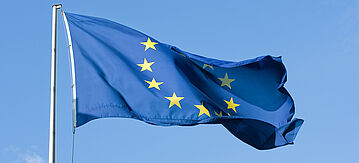Europe 2020 Strategy

In 2010, the European Council adopted the strategy Europe 2020, a new strategy for jobs and growth.
The strategy concentrates on the key areas knowledge and innovation and puts stronger focus on sustainable development in economic activities, high employment rates and social inclusion (smart, sustainable and inclusive growth). The strategy defines a sustainable economy as resource-efficient, green and competitive. Europe 2020 centres on five headline targets for the year 2020:
- realising employment rate of 75 percent of the population aged 20 to 64;
- achieving investments in research and development by private and public stakeholders adding up to 3 percent of the EU GDP;
- reducing greenhouse gas emissions by 20 percent compared to 1990 levels, increasing the share of renewables in total energy consumption to 20 percent and moving towards a 20 percent increase in energy efficiency;
- reducing school drop-out rates to less than 10 percent, increasing the share of 30 to 34 year olds having completed tertiary or equivalent education to at least 40 percent;
- lifting at least 20 million people out of the risk of poverty or social exclusion.
On the basis of these EU-wide headline targets, all member states determine national targets, taking into consideration their starting situation and national circumstances. The targets for reducing greenhouse gas emissions and expanding the use of renewables were transposed into national goals for all member states with the EU climate and energy package adopted in 2009.
The seven flagship initiatives of Europe 2020 are also aimed at providing specific guidance: These are: (1) Innovation Union, (2) Youth on the move, (3) Digital agenda for Europe, (4) Resource efficient Europe, (5) An industrial policy for the globalisation era, (6) An agenda for new skills and jobs and (7) European platform against poverty.
The flagship initiative Resource efficient Europe in particular contains important approaches to developing European environment and climate policies. It supports strategic programmes in the areas of climate action, energy, transport, industry, resources, agriculture, fisheries, biodiversity and regional development. The aim is to take adequate account of resource efficiency in the relevant fields of policy.
Interim targets and measures to set the EU on the path to sound resources management and sustainable growth were proposed in the Commission’s communication of September 2011, titled Roadmap to a Resource Efficient Europe. The roadmap identifies the economic sectors that consume the greatest share of resources (nutrition, housing and mobility) and proposes measures and tools that aim to change production and consumption patterns.
Member states present their measures planned for implementing the Europe 2020 strategy in national reform programmes. Seven integrated guidelines, consisting of the broad guidelines for the economic policies of the Member States and of the Union and employment policy guidelines, establish the framework for the national reform programmes. Guideline 3 underlines, for example, the importance of a sustainable energy supply and a resource efficient and low-carbon economy. The guideline proposes reforms on the sides of both supply and demand.
In October 2014 the Council of the European Union adopted conclusions that plan for greening the Europe 2020 strategy.
The action plan Closing the loop - An EU action plan for the Circular Economy, published by the European Commission in December 2015, currently plays an important role in implementing the aims of the flagship initiative on resource efficiency. It contains a Commission work programme up to 2019, which sets out several individual measures that are to strengthen resource efficiency and circular economy in Europe. The aim is to use natural resources more efficiently throughout the entire value chain and to close cycles. In March 2019, the EU Commission stated in its report on the implementation of the action plan that all 54 measures have either been completed or will be implemented in the near future. Some measures are expected to be fully implemented after 2019.
The new commission, led by Ursula von der Leyen, announced that it would adopt a new circular economy action plan in 2020.
